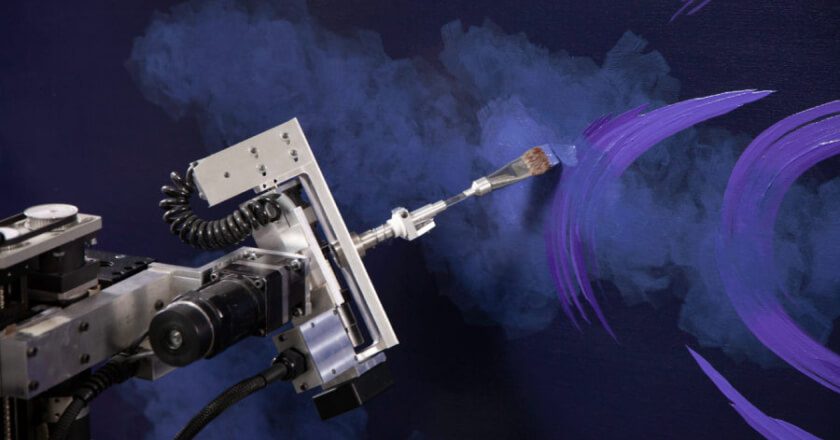Get Inspired
Build the life you love. Learn more about fusioneering:

Posted on October 12, 2022 in Inspiration
Do you often think about your potential? Do you know what you’re capable of? When you consider these things, do you feel that there’s a limit to your abilities… a bar that can’t be passed?
What if what was holding you back wasn’t any perceived limitations of your skills or intellect, but was actually a limitation of your mindset?
Are you a fixed being, or do you long for growth?
Dr. Carol Dweck, a psychologist, researcher, and professor at Stanford University, has put much work into questions of mindset, personality, intelligence, and motivation. Dr. Dweck claims that based on implicit views of where talent and ability come from, individuals fall on a spectrum of two different mindsets: a fixed mindset and a growth mindset.
A fixed mindset operates under the assumption (or conviction) that traits, abilities, talents, and temperament are given qualities subject to minimal change over one’s life. A person with a fixed mindset believes that the way they were born – i.e. “gifted” or “untalented,” calm or quick to anger – is the way that they’ll more or less always be. A fixed mindset supposes that human beings are fixed entities, devoid of the capacity for large-scale change over time.
A growth mindset operates under the opposite assumption. A human is not a static figure etched in stone, but rather a constantly shifting and changing form. The growth mindset says that no one has a set capacity for knowledge or skill. While some may start off with more inherent talent than others, with enough persistence, practice, and patience, anyone can grow to achieve things they may have thought impossible. The defining factor for success and growth is simply whether or not someone believes they can achieve something.
For Paul Kirby, persistence in the face of great odds has been one of the cornerstones of his success. Get Inspired: Paul Kirby’s Journey to Inspire Through Fusioneering
Adopting a growth mindset (or at least critically evaluating fixed mindset thinking) can unlock entire new doors for your happiness and your future. A fixed mindset is limiting because it revolves around the protection of one’s ego. If someone with a fixed mindset attempts a new challenge and fails, then that failure becomes an indictment of that person’s supposedly fixed talents and abilities. The fixed mindset ego is looking to prove and showcase that it already has all of the knowledge and ability it’ll ever need, and so it seeks to avoid challenges that may lead to failure.
A growth mindset, however, leads to the active seeking of challenges and opportunities for development. Failure is not a reflection of the individual, but rather a learning experience and another step along the path of self-improvement. Furthermore, with a growth mindset, the successes and strengths of other individuals are not seen as a threat or as competition. Because of this, a growth mindset more easily allows one to appreciate and learn from those around them, leading to better teamwork capabilities as well as individual improvement.
A growth mindset begins with the desire for personal growth and the acceptance that flaws are both okay and fixable. Accept your weaknesses and shortcomings – it is only through acknowledgment and understanding that these qualities may be overcome.
Dr. Dweck found that those with a growth mindset generally possessed a stronger sense of purpose. A fixed mindset forces people to aim for goals that they think are easily attainable… but probably aren’t what they really want. However, if one believes that anything is achievable, they can set goals that more closely align with their true self (or the person they’d like to become).
Read More: How to Find and Follow Your Passions
Perseverance is a key component of the growth mindset. Genius and success don’t rely merely on talent, but rather on hard work and resistance to giving up. Achievement is something you acquire through work, not something that’s already possessed or easily attained. The more determined you are, the further you go.
As Henry Ford once said, “Whether you believe you can do a thing or not, you are right.”
Challenges are new opportunities for learning and improvement. The worst outcome of a challenge is failure, but failure is often the best teacher. The learning process, and the journey towards one’s goals, are as valuable as the end result. The struggle toward achievement is where the real improvement and advancement occurs and should be celebrated as a beautiful aspect of the human experience.
Ready to grow? Get started on a fusioneering journey, or find inspiration in the award-nominated documentary about Paul Kirby’s enduring drive to marry his passions. Follow the Kirby Foundation Instagram, Facebook, and mailing list for updates and more!
Are you interested in hearing the complete story of Paul and Dulcinea? Watch the video (nominated for Best Short Film at the 2021 Vail and Portland Film Festivals) for more info.
Want to be the first to know about every exciting new project at the Kirby Foundation?
Join Our Mailing ListBuild the life you love. Learn more about fusioneering:
Why pick which passion you should follow? Fusioneering allows you to cultivate many interests into something innovative and revolutionary.

Meet Paul and explore how blending your interests can empower you to follow your enthusiasm and bring your passions to life.